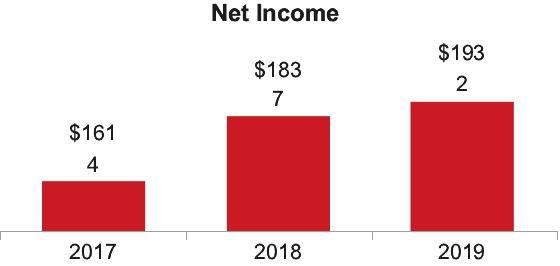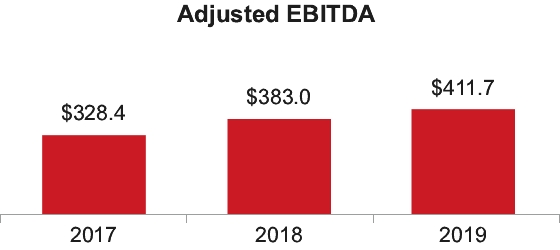CORPORATE RESPONSIBILITY AND ENVIRONMENTAL SUSTAINABILITY
We recognize that corporate social responsibility and sustainable business practices are critically important to the long-term interests of our stockholders and other stakeholders. To promote these interests, we are committed to responsible business practices and continual improvement of our operations and our relationships with our employees, our customers and the communities in which we operate. While we are still in the early stages, we are also committed to enhanced transparency, and best practices in, our corporate responsibility and sustainability policies and practices. Below are some of the ways in which we demonstrate our commitment to the environment, our employees and communities, and responsible governance.
Commitment to the Environment
Circular Economy
The Circular Economy is an ever-evolving and fast-growing system that centers on the idea of redesigning production and consumption, eliminating waste, and making continual use of resources. This system differs from more traditional economic models in which a product is created, used, and disposed of, or sent to a waste collection facility, when its useful life ostensibly concludes. Simply put, the Circular Economy centers on keeping products and materials in use, and extending their utility to maximize environmental and economic benefits of those products and materials. Circular Economy business strategies have continued to spread to virtually all product categories, including the automobile industry.
IAA’s Role
Automobiles play an important role in the economy and are consumed on a significant scale, resulting in the consumption of vast amounts of society’s raw materials. The ability to reuse and/or recycle the materials commonly found in vehicles can help to mitigate the significant impact the sourcing of new materials have on the environment. IAA processes over 2 million vehicles annually through the automotive Circular Economy to buyers and recyclers, via its automobile auction business model, giving them second lives and beyond, as well as a renewed purpose, instead of ending the cycle prematurely in a landfill. Through IAA’s business, those vehicles are able to reach their highest, best and multiple uses, minimizing negative environmental impact.
IAA believes that when a vehicle is at the end of its initial life for an owner, that vehicle should circulate to another owner, who can then begin the next phase of that vehicle’s life. In practical terms, that means getting the vehicle to a new owner who will: Refurbish, repair, or remanufacture the vehicle for future use; Reuse the vehicle and its components; or, Recycle whatever cannot be returned to service.
This process of putting vehicles to a second use also eliminates the need to extract new raw materials from the environment, which would otherwise be necessary to build a new vehicle. The same is true for automobile parts. Keeping a vehicle or its parts in use, or reusing those vehicles or parts, saves on energy, greenhouse gas (“GHG”) emissions, and water use, and thereby helps to mitigate climate change, by reducing the need to manufacture new vehicle parts. This reuse also reduces waste, and the impact from automobiles degrading and leaching potentially harmful substances into the environment.
Finally, IAA’s digitization of the auction process is another such environmentally responsible solution. IAA has rapidly converted nearly all auctions to virtual auctions with the goal of minimizing, and potentially eliminating, the need for any physical attendance at the auctions. Virtual auctions eliminate the need to transport the vehicle out of storage for display and eliminates the requirement that bidders physically drive to auction sites, both of which result in lowered GHG emissions and save on energy and water use. In addition, during the current COVID-19 pandemic, digitization of the auction process reduces the risk to buyers of traveling to auctions and interacting with other buyers.
Commitment to Social Responsibility
We believe that socially responsible practices, including being a good employer to our employees, being good partners with our customers and being good neighbors within our communities, go hand in hand with generating value for our stockholders.
























